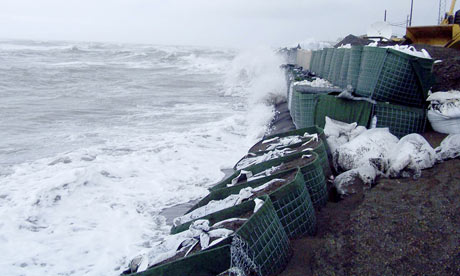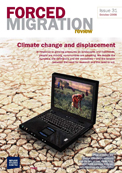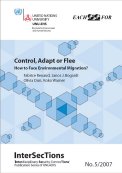Climate Change + Migration = Climigration
Amidst the ongoing definitional debate over people who are forced to leave their homes due to the creeping effects of climate change, a new term has surfaced in the past few weeks to describe the situation in which this is happening. Robin Bronen, an Alaskan human rights attorney and a National Science Foundation fellow, has coined the term “climigration”. She is part of a growing group of experts calling for an international legal regime to protect the rights of people displaced by the creeping effects of climate change. In a paper published by the UN University, Bronen describes “climigration”:
Climigration results from on-going climate induced ecological changes in a community’s environment that severely impact infrastructure, such as health clinics and schools, as well as the livelihoods and well being of the people residing in the community. Climigration occurs when a community is no longer sustainable for ecological reasons. Climigration differs from migration caused by catastrophic random environmental events. [source]
The concept of climigration implies that there is no possibility of these communities returning home. The term is becoming increasingly popularized in light of the fact that 340 residents of the tiny coastal village of Newtok, Alaska have just voted to relocate 9 miles away, up the Ninglick River. Warming temperatures are slowly melting away the permafrost which acts as natural barrier to protect the village against seasonal flooding. Happening simultaneously is the start of a long and well-planned evacuation program for the residents of the low-lying Cataret Islands. Rising sea levels and salt water intrusion of crops is slowly forcing the locals to seek safer land.

Waves pounding against the sandbagged seawall in Kivalina, Alaska. Photo credit: Mary Sage/AP
“Communities forced to relocate must participate throughout the process, including the decision to relocate in the first place” says Bronen. “Obvious as it may seem through common sense, such rights could be easily trampled in many places and should be defined and protected internationally. There needs to be a new institutional framework that is created, that’s based in human rights doctrines … that facilitates relocation,” Bronen also said.
I have a feeling that “climigration” is a term that will work its way into a specific vocabulary of how we need to resolve some extremely difficult social, environmental, and cultural problems to address the issue of environmental migration.
Article by Dan DaSilva



